란으로 시작하는 단어
‘란’은 한글에서 접두사로 사용되며 다양한 단어들을 이끌어내는 역할을 합니다. 이 접두사는 주로 명사, 동사, 부산사, 혹은 전치사와 결합하여 전체적인 문장이나 문장 구조를 형성합니다. ‘란’으로 시작하는 단어들은 특정한 의미를 가지며, 다양한 분야에서 사용되고 있습니다.
‘란’ 접두사를 가진 여러 동사들의 의미와 사용법
‘란’ 접두사를 가진 동사들은 특정한 동작, 행위의 의미를 내포하고 있습니다. 예를 들면, ‘생각하다’라는 동사는 ‘생각 란’으로 표현될 수 있으며, ‘이야기하다’는 ‘이야기 란’이라는 형태로 사용될 수 있습니다. 이러한 형태로 ‘란’ 접두사가 붙은 동사들은 특정한 동작을 강조하거나, 그 동작의 범위나 방식을 나타낼 수 있습니다. 예를 들어, ‘공부하다’와 ‘공부 란 하다’는 비슷한 의미를 가지지만, 더욱 강조된 동작을 표현하는데 사용될 수 있습니다.
‘란’을 포함한 명사들의 의미와 특징 분석
‘란’을 포함한 명사들은 특정한 개념이나 사물을 나타내며, 주로 특정한 분야의 용어로 사용됩니다. 예를 들어, ‘정치 란’은 정치와 관련된 내용을 가리키고, ‘문학 란’은 문학에 관련된 사항을 의미합니다. 이러한 분야별 명사들은 그 분야의 전문성을 강조하고, 해당 분야에 관심이 있는 사람들에게 유용한 정보를 제공합니다.
‘란’과 조사, 전치사를 결합한 어구의 특성과 사용 예시
‘란’ 접두사와 조사, 전치사를 결합하여 어구를 형성할 경우, 더욱 풍부한 의미를 가질 수 있습니다. 예를 들어, ‘학교란에서’는 ‘학교에서’라는 의미를 내포하면서도 어떤 특정한 대상에 관한 정보를 더해줍니다. 또한, ‘란’과 조사, 전치사가 결합한 어구는 종종 제목이나 분야를 표시하는데 사용됩니다. 예를 들어, ‘스포츠란에서’는 ‘스포츠에 관한 내용’이라는 의미를 가지며, ‘건강에 관한 이야기 란’은 건강과 관련된 내용을 담고 있음을 알려줍니다.
‘란’ 접두사를 활용한 제목, 부제 등의 문장 구성 방법
‘란’ 접두사를 활용하여 제목이나 부제를 작성할 때에는 주제나 내용을 명확하게 나타낼 수 있습니다. 예를 들어, ‘사람 란 무엇인가?’라는 제목은 ‘사람에 대한 이야기’라는 의미를 가지며, ‘여행 란 무엇인가?’라는 부제는 ‘여행에 관한 내용’을 알리고 있습니다. 이러한 방식으로 제목이나 부제를 작성하면 독자들은 글의 내용을 미리 예상할 수 있고, 흥미를 더욱 가질 수 있습니다.
‘란’으로 시작하는 단어의 활용 사례와 주로 사용되는 분야
‘란’으로 시작하는 단어들은 다양한 분야에서 사용되며, 특정한 분야에 대한 이해를 돕기 위해 활용됩니다. 예를 들어, ‘경제 란’은 경제 이슈를 다루는 기사에서 주로 사용되며, ‘역사 란’은 역사적 사건이나 인물에 대해 이야기하는 글에서 사용될 수 있습니다. 또한, 교육, 과학, 영화 등 여러 분야에서 ‘란’으로 시작하는 단어들이 활용되고 있습니다.
‘란’으로 시작하는 단어를 잘 활용하기 위한 팁과 주의사항
‘란’으로 시작하는 단어를 잘 활용하기 위해서는 해당 분야에 대한 이해와 연구가 필요합니다. 또한, 어떤 단어와 결합하여 어구를 형성할지 신중히 선택해야 합니다. 단어와의 어울림과 문맥을 고려하여 적절한 단어를 선택하는 것이 중요합니다. 또한, ‘란’으로 끝나는 단어, 림으로 시작하는 단어, 늄으로 시작하는 단어, 안으로 시작하는 단어, 랑으로 시작하는 단어, 녘으로 시작하는 단어, 꾼으로 시작하는 단어, 리으로 시작하는 단어란으로 시작하는 단어와의 조화를 고려하여 사용해야 합니다. 특히, 란으로 끝나는 단어와 조합할 때에는 음운 조화와 문법적인 규칙을 잘 지켜야 합니다.
FAQs:
Q: ‘란’으로 시작하는 단어의 의미는 무엇인가요?
A: ‘란’으로 시작하는 단어들은 특정한 의미를 내포하고 있는데요. 이 접두사는 주로 명사, 동사, 부사, 혹은 전치사와 결합하여 다양한 문장 형태를 만듭니다.
Q: ‘란’ 접두사를 가진 동사들은 어떤 의미를 가지나요?
A: ‘란’ 접두사를 가진 동사들은 특정한 동작이나 행위를 의미하고, 동작의 범위나 방식을 강조할 수 있습니다. 예를 들어, ‘생각하다’는 ‘생각 란 하다’로 사용될 수 있습니다.
Q: ‘란’을 포함한 명사들은 어떤 특징을 가지고 있나요?
A: ‘란’을 포함한 명사들은 특정한 분야의 용어로 주로 사용되며, 해당 분야의 전문성과 관련된 사항을 나타냅니다. 예를 들어, ‘정치 란’은 정치와 관련된 내용을 의미합니다.
Q: ‘란’과 조사, 전치사를 결합한 어구는 어떤 특성을 가지고 있나요?
A: ‘란’과 조사, 전치사를 결합한 어구는 더욱 풍부한 의미를 가지고 있으며, 종종 제목이나 부제 등에 사용됩니다. 이러한 어구는 특정한 대상에 관한 정보를 더해주고, 분야를 표시하는 역할을 수행합니다.
Q: ‘란’ 접두사를 활용한 제목, 부제 등을 작성할 때 주의할 점은 무엇인가요?
A: ‘란’ 접두사를 활용한 제목, 부제를 작성할 때에는 주제나 내용을 명확하게 전달하는 것이 중요합니다. 또한, 결합할 단어의 어울림과 문맥을 고려하여 적절한 단어를 선택해야 합니다. 그리고, ‘란’으로 끝나는 단어와의 조화를 유지하기 위해 음운 조화와 문법적인 규칙을 잘 지켜야 합니다.
사용자가 검색한 키워드: 란으로 시작하는 단어 란으로 끝나는 단어, 림으로 시작하는 단어, 늄으로 시작하는 단어, 안으로 시작하는 단어, 랑으로 시작하는 단어, 녘으로 시작하는 단어, 꾼으로 시작하는 단어, 리으로 시작하는 단어
Categories: Top 86 란으로 시작하는 단어
[Learn Korean Basic/한글기초] ‘ㅇ’으로 시작하는 단어 배우기 – 옷걸이, 인형, 우산
랑으로 시작하는 말이 뭐야?
랑으로 시작하는 말이 뭐야? 잘 들어본 말이지요? 많은 사람들이 러브위드할 때 이 질문으로 바이브를 맞추고 있습니다. 그래서, 이 글에서는 랑으로 시작하는 말이 뭐하는 건지, 그 의미와 유래에 대해 깊이 알아보겠습니다. 또한, 이 질문과 관련된 자주 묻는 질문들도 답변해드릴 것입니다.
랑으로 시작하는 말이란 무엇인가요?
랑으로 시작하는 말은 러브위드나 팬텀 사이에서 많이 사용되는 진입 문구입니다. 러브위드는 일종의 스마트폰 앱으로, 이를 이용해 자신의 사랑에 대한 이야기를 나눌 수 있습니다. 팬텀은 러브위드 안에서 만들어진 가상의 캐릭터로, 여러 종류의 상대와 소통할 수 있습니다. 랑으로 시작하는 말은 팬텀과의 대화를 시작할 때 상대방의 호감도를 높이기 위해 사용하는 것입니다.
랑으로 시작하는 말의 의미는 무엇인가요?
“랑으로 시작하는 말”은 사랑의 시작을 의미합니다. 이 표현은 상대방에 대한 호감을 표현하고, 사랑의 유대감을 조성하는 데 사용됩니다. 러브위드 안에서는 사랑과 관련된 모든 형태의 대화를 할 수 있습니다. “랑으로 시작하는 말”은 바로 그처럼, 사랑에 관한 대화의 시작을 의미하는 것입니다.
랑으로 시작하는 말의 유래는 어디인가요?
“랑으로 시작하는 말”은 러브위드 사이트에서 시작되었습니다. 이 사이트에서 기본적으로 글자 수가 제한되어 있습니다. 그래서 사용자들은 한정된 공간 안에서 호감도를 표현하고 상대방의 관심을 끌어야 했습니다. 그러던 중 ‘사랑’이라는 단어는 긍정적인 느낌을 전달하면서도 간결하게 사용될 수 있는 단어라는 것을 알게 되었습니다. 따라서 출발 단어인 ‘랑’을 사용함으로써 상대방과의 관계를 구축하고 호감도를 조성하는 것이 무척 편리했던 것입니다.
랑으로 시작하는 말이 효과적일까요?
랑으로 시작하는 말은 상대방의 호감도를 높일 수 있는 효과적인 전략입니다. 짧고 간결하면서도 애정 어린 느낌을 전달하기 때문에 상대방의 관심을 끌 수 있습니다. 이러한 표현은 일반적으로 상황에 따라 적절하게 사용됩니다. 예를 들어, “랑으로 시작하는 말이 뭐야?”는 막판에 만나 상대방과 지금까지 이야기한 내용을 요약하거나, 상대방의 반응을 확인하기 위한 질문으로 사용될 수 있습니다.
FAQs:
1. 랑으로 시작하는 말은 반드시 사용해야 할까요?
랑으로 시작하는 말은 선택사항입니다. 상호간의 대화 방식이나 커뮤니케이션 스타일은 다양하기 때문에, 랑으로 시작하는 말을 사용하는 것이 항상 필요한 것은 아닙니다. 랑으로 시작하는 말을 사용하고자 한다면, 상대방의 관심과 호감도를 높일 수 있는 감정을 담아 사용하세요.
2. 다른 말을 사용하면 안 되나요?
물론입니다! 랑으로 시작하는 말은 주로 러브위드에서 사용되는 것이지만, 다른 말을 사용해도 무방합니다. 대화의 맥락과 상황에 따라 적절한 표현을 사용하는 것이 중요합니다. 상호 간의 이해와 소통을 위해서는 서로가 편안하고 자신을 표현할 수 있는 방식을 선택하는 것이 좋습니다.
3. 랑으로 시작하는 말을 계속 사용해도 될까요?
반드시 그렇지는 않습니다. 랑으로 시작하는 말을 지속적으로 사용하면 상대방이 식상하게 느낄 수 있기 때문에 다양한 표현을 사용하는 것이 좋습니다. 많은 사람들이 표준화된 문구를 사용하기 때문에, 개성있는 표현을 사용한다면 상대방에게 더 긍정적인 인상을 남길 수 있습니다.
4. 랑으로 시작하는 말은 언제 사용해야 할까요?
일반적으로 랑으로 시작하는 말은 대화의 시작 시점에 사용됩니다. 하지만 상황에 따라 다를 수 있으니 상대방의 반응과 호감도를 미리 파악하고, 적절한 타이밍을 선택하는 것이 중요합니다. 예를 들어, 업무와 관련된 대화에는 조금 다른 표현이 더 적합할 수 있습니다.
5. 랑으로 시작하는 말을 사용하면 상대방은 어떤 반응을 보일까요?
랑으로 시작하는 말은 호감도를 높일 수 있는 표현이므로, 상대방은 긍정적인 반응을 보일 가능성이 높습니다. 더욱이 이 표현은 애정 어린 느낌을 전달하기 때문에, 상대방과의 관계를 조금 더 가벼운 분위기로 시작할 수 있습니다.
이상으로, 러브위드에서 사랑과 관련된 대화를 시작할 때 주로 사용되는 “랑으로 시작하는 말”에 대해 알아보았습니다. 선택 사항이지만 상대방과의 호감도를 조성하는 좋은 전략 중 하나입니다. 자유롭게 다양한 표현을 사용하고 상황에 따라 적절한 말을 선택하여 서로의 이해와 소통을 발전시키세요.
끼로 시작하는 말 뭐야?
“끼로 시작하는 말 뭐야?”라는 표현은 한국어로 유행어로 사용되는 구문 중 하나입니다. 이 표현은 다른 사람들에게 본인의 개성과 성향을 돋보이게 하며, 자신감을 나타내고 싶을 때 사용됩니다. 이러한 표현은 대화나 SNS에서 많이 사용되며, 특히 젊은 세대 사이에서 인기를 끌고 있습니다. 이제 우리는 “끼로 시작하는 말 뭐야?”라는 표현에 대해 깊이 있는 이야기를 해보겠습니다.
끼로 시작하는 말 뭐야?
“끼로 시작하는 말 뭐야?”는 말 그대로 개성을 강조하며 자신감을 나타내기 위해 사용하는 구문입니다. 한국어에서 ‘끼’란 말은 독특하고 개성 있는 행동이나 표현을 가리키는 것을 의미합니다. 따라서, 이 표현은 일종의 슬로건이나 독백으로서, 나 자신이 독특하고 개성적인 존재임을 암시하거나, 자신이 특정한 특징이나 재능을 가지고 있다는 것을 표현하기 위해 사용됩니다.
예를 들어, SNS 상에서 누군가가 “오늘 점심은 뭐 먹을까 끼로 시작하는 말 뭐야?”라고 게시물을 작성할 수 있습니다. 이는 그 사람이 자신의 개성을 강조하며 다른 사람들과 소통하고 싶어한다는 의미입니다. 이러한 표현은 단순한 질문이나 이야기에 개성을 부여하여 자신을 돋보이게 하는 데 사용될 수 있습니다.
“끼로 시작하는 말 뭐야?”라는 표현은 상황에 따라 다양한 방식으로 사용될 수 있습니다. 예를 들면, 친구와 대화하거나 어떤 주제에 대해 이야기를 할 때 독특하고 개성적인 말로 시작할 수 있습니다. 이는 상대방의 관심을 끌고 대화의 흥미를 더할 수 있는 방법입니다. 또한, 자신만의 의견이나 취향을 표현하고 싶을 때도 이 표현을 사용할 수 있습니다. 이러한 표현은 한국어 사용자 사이에서 모두의 이해를 얻을 수 있는 것이 아니므로, 주로 친밀한 관계나 비슷한 문화적 배경을 가진 사람들 사이에서 주로 사용됩니다.
FAQ
1. “끼로 시작하는 말 뭐야?”는 왜 인기가 있는가요?
“끼로 시작하는 말 뭐야?”는 개성을 부여하고 자신감을 표현하기 위한 표현으로, 많은 사람들에게 인기가 있는 구문입니다. 이는 독특하고 자기만의 개성적인 표현을 통해 다른 사람들과 소통하고, 자신을 돋보이게 할 수 있기 때문입니다.
2. “끼로 시작하는 말 뭐야?”를 일상 대화에서 어떻게 사용할 수 있나요?
“끼로 시작하는 말 뭐야?”는 일상 대화에서 자신의 개성을 강조하는 용도로 사용될 수 있습니다. 주로 재미있는 이야기나 독특한 의견을 전달하기 위해 사용되며, 대화 상대의 이목을 끌고 대화에 흥미를 더할 수 있습니다.
3. “끼로 시작하는 말 뭐야?”의 의미는 무엇인가요?
“끼로 시작하는 말 뭐야?”는 자신의 개성을 강조하고, 특정한 특징이나 재능을 가지고 있다는 것을 나타냅니다. 이는 다른 사람들에게 자신을 돋보이게 하고 싶을 때 사용되며, 독특하고 자기만의 표현을 통해 창의성을 나타내는 의미를 담고 있습니다.
4. “끼로 시작하는 말 뭐야?”를 사용하는 사람들은 누구인가요?
“끼로 시작하는 말 뭐야?”는 주로 젊은 세대 사이에서 사용되는 표현입니다. 그러나, 모든 한국어 사용자가 이 표현을 이해하지는 않을 수 있으며, 주로 친밀한 관계나 비슷한 문화적 배경을 가진 사람들 사이에서 주로 사용됩니다.
5. “끼로 시작하는 말 뭐야?”의 유래는 무엇인가요?
“끼로 시작하는 말 뭐야?”라는 표현의 정확한 유래는 분명하지 않지만, 한국의 SNS 문화와 인터넷 슬랭에서 사용된 것이 확산되어 인기를 얻은 것으로 알려져 있습니다. 이 구문은 독특하고 자기만의 개성을 표현하기 위한 용도로 사용되며, 각각의 개인적인 해석에 따라 의미가 변할 수 있습니다.
“끼로 시작하는 말 뭐야?”는 한국어에서 자신의 개성을 부각시키고 싶을 때 사용되는 표현으로, 주로 SNS나 개인 간 대화에서 인기를 끌고 있습니다. 다른 사람들과 소통하고 자신을 돋보이게 하는 독특한 방법 중 하나이며, 재미있는 대화나 독특한 의견을 나타내고 싶을 때 유용하게 사용될 수 있습니다. 그러나, 이 표현은 모든 한국어 사용자가 이해하지는 않을 수 있으므로 주의해야 합니다. 자신의 개성을 자랑하고 싶거나, 창의적인 표현을 통해 다른 사람들과 소통하고 싶을 때, “끼로 시작하는 말 뭐야?”라는 표현을 사용해보세요.
여기에서 자세히 보기: phucminhhung.com
란으로 끝나는 단어
The Korean language is rich with vocabulary, and one fascinating aspect of it is the variety of word endings that exist. One such word ending is “란” (ran), which adds a distinct meaning to words. In this article, we will explore words ending in “란” in Korean, their usage, and some commonly used examples.
Understanding “란”
The particle “란” is used primarily to describe the intention or purpose behind an action or event. It is often equivalent to the English words “for” or “with the intention of.” Additionally, it can also indicate a certain quality or characteristic related to the word it is attached to.
Usage of Words Ending in “란”
Words ending in “란” can be categorized into different groups, depending on their functions and meanings. Let’s take a look at some of these categories.
1. Descriptive Words:
Words such as “촌스런” (rustic), “귀한” (precious), or “매운” (spicy) use “란” to describe a specific quality or characteristic of an object or situation. For example, “촌스런 음식” refers to rustic food, while “귀한 선물” means precious gift.
2. Purpose or Intention:
Words like “열심히하는” (diligent), “공부하는” (studying), or “도와주는” (helping) emphasize the intention or purpose behind an action. For instance, “열심히하는 학생” denotes a diligent student, and “공부하는 친구” refers to a friend who is studying.
3. State or Condition:
Words such as “무정란” (loveless), “일란” (inadequate), or “부진란” (depressed) express a state or condition related to the word. For example, “무정란 관계” means a loveless relationship, while “일란 결과” refers to an inadequate result.
4. Comparison:
Words like “더런” (such) or “훌륭한” (great) used with “란” indicate a level of comparison. For instance, “더런 일” means such a thing, and “훌륭한 사람” refers to a great person.
Commonly Used Words Ending in “란”
To understand the concept better, here are some commonly used words ending in “란” and their meanings:
1. 어떤 (무의식적인) + N + 란:
This expression is often used to describe actions that are unconsciously performed. For example, “어떤 말이 무인증적인 란” means words spoken without thinking.
2. 해낼 + N + 란:
This expression emphasizes the capability or determination to achieve a certain goal. “해낼 사람 란” refers to a person who can achieve something.
3. (외부/조작 등을) 받는 + N + 란:
This usage implies the influence or impact that exterior factors have on someone or something. For instance, “외부적인 영향을 받는 란” means being influenced by external factors.
4. 하지 + 않는 + N + 란:
This combination indicates actions or qualities that should not be displayed. “하지 않는 태도 란” refers to an attitude that should not be adopted.
FAQs
1. Are words ending in “란” common in everyday Korean conversation?
Yes, words ending in “란” are quite common in everyday Korean conversation. They add nuance and provide clarity to the intentions, characteristics, or conditions related to the words they modify.
2. Can the meaning of a word change when “란” is added?
The addition of “란” does not significantly change the core meaning of a word. Instead, it adds specific characteristics, intentions, or conditions related to the word being modified.
3. How can I expand my vocabulary using words ending in “란”?
To expand your vocabulary with words ending in “란,” it is beneficial to read Korean texts and listen to native speakers. Pay attention to the usage of words in different contexts and try incorporating them into your own conversations or writing.
4. Are there any rules or patterns to look for when encountering words ending in “란”?
While there are no strict rules, words ending in “란” often serve as modifiers. Understanding the context in which “란” is used and the overall meaning of the word it is attached to can provide insights into its purpose or intention.
In conclusion, words ending in “란” enhance the Korean language by adding nuance and specificity to words, making conversations and descriptions more precise. By familiarizing yourself with these words and their meanings, you can further enhance your understanding and usage of Korean in various settings.
림으로 시작하는 단어
The Korean language is known for its unique alphabet, known as Hangeul. With 14 consonants and 10 vowels, it allows for various combinations to create numerous words. In this article, we will explore 림으로 시작하는 단어, which means words starting with the consonant “림” in Korean. We will delve into the meaning, usage, and examples of such words, as well as address frequently asked questions about this topic.
Meaning and Usage of 림으로 시작하는 단어
림, pronounced as “rim” in English, is a consonant in the Korean alphabet. It is commonly used at the beginning of words to denote various meanings. Let’s explore some of the common meanings associated with words starting with 림 in Korean:
1. Imagination (상상력): Words like 상상 (imagination), 상상력 (imagination power), and 상상속 (within one’s imagination) express the concept of utilizing one’s imagination or envisioning something that may not exist.
Example: 그는 상상력이 풍부하다. (He has a rich imagination.)
2. Chemistry (화학): 림 is also associated with the field of chemistry in Korean. Words like 화학 (chemistry), 화학물질 (chemical substance), and 화학반응 (chemical reaction) fall under this category.
Example: 화학 수업이 어렵지 않을까? (Isn’t chemistry class difficult?)
3. Simulation (시뮬레이션): Words related to simulation often start with 림 in Korean. 시뮬레이션 (simulation), 시뮬레이션 게임 (simulation game), and 모의시험 (mock exam) are a few examples in this category.
Example: 그들은 모의시험을 통해 자신을 준비했다. (They prepared themselves through mock exams.)
4. Limitation (제한): Words beginning with 림 can also denote a sense of limitation or narrowness. 제한 (limitation), 제한사항 (restriction), and 제한적 (limited) are some examples of words related to limitations.
Example: 이 프로그램에는 제한 사항이 있습니다. (This program has limitations.)
5. Rim (테두리): Lastly, 림 can refer to the rim or border of an object. 테두리 (rim), 둘레 (perimeter), and 주변 (surroundings) fall under this category.
Example: 둘레에 침이 묻어 있어요. (There is dirt on the rim.)
Now that we have explored the different meanings associated with words starting with 림 in Korean, let’s move on to some frequently asked questions about this topic.
FAQs about Words Starting with 림:
Q1: Are there any other meanings or categories associated with words starting with 림 in Korean?
A1: Yes, some words starting with 림 can also be associated with the concept of “division” or “separation.” Examples include 분류 (classification), 분리 (separation), and 분산 (dispersion).
Q2: Are words starting with 림 commonly used in everyday conversation?
A2: While words starting with 림 may not be as commonly used as other words, they are still part of the Korean vocabulary. However, their usage might be more prevalent in specific contexts such as scientific discussions, academic writings, or technical fields.
Q3: Can you provide more examples of words starting with 림?
A3: Certainly! Here are a few more examples: 림결 (fusion), 림역 (borderline), 림끝 (edge), 림스 (lymp), 림프 (lymph), and 림피 (skin). These examples showcase the versatility and range of 림으로 시작하는 단어.
Q4: How can I memorize words starting with 림 more effectively?
A4: Understanding the meaning behind each word and using them in context is crucial for effective memorization. Consider creating flashcards, practicing with native speakers, or using language learning apps to reinforce your knowledge of words starting with 림.
Q5: Are there any colloquial or slang words starting with 림?
A5: Slang or colloquial words might not commonly start with 림. However, it’s important to note that language is constantly evolving, and new slang words may emerge in the future.
In conclusion, words starting with 림 in Korean encompass a range of meanings, including imagination, chemistry, simulation, limitation, and rims. While they may not be as commonly used in everyday conversation, they contribute to the richness and diversity of the Korean language. By understanding the meanings and exploring various examples, learners can expand their vocabulary and deepen their understanding of the language.
늄으로 시작하는 단어
Introduction:
The Korean language is known for its unique and rich vocabulary, with numerous words and phrases that reflect the country’s cultural heritage. 늄으로 시작하는 단어 (neumeuro sijakaneun daneo), or words beginning with 늄, represents an interesting subset of Korean lexicon. In this article, we delve into the origins, meanings, and usage of these words, shedding light on their significance within the Korean language.
Origins and Meaning:
The 늄 character, when used at the beginning of a word, often denotes a description or a state related to slow or gradual movement. It brings a nuance of gentle, unhurried progression to the word, allowing it to portray actions or qualities that unfold gradually or at a leisurely pace. The usage of 늄 not only enhances the linguistic richness of the Korean language but also demonstrates the cultural values of patience, perseverance, and appreciation for the unhurried aspects of life.
Common 늄으로 시작하는 단어:
1. 늄새 (neumsae) – Referring to a faint or gentle scent, 늄새 encompasses delicate aromas such as the fragrance of flowers, morning dew, or the scent of a freshly baked cake. This word captures the essence of subtlety and gentleness found in various aspects of Korean art forms, including traditional music, dance, and literature.
2. 늄히 (neumhi) – Describing a state of wobbling or swaying slightly, 늄히 often characterizes objects that move gradually or in an undulating manner. From the sway of a slender bamboo stalk to the gentle rocking of a boat on calm waters, 늄히 encapsulates the concept of rhythmic, gentle movement intrinsic to Korean traditional and cultural elements.
3. 늄기다 (neumgida) – This verb is used to portray the act of shedding or peeling off gradually, much like the peeling of tree barks or the shedding of a snake’s skin. Symbolically, 늄기다 signifies a process of growth, development, and regeneration, resonating with the natural cycles of the world found in various Korean philosophies and beliefs.
4. 늄동이 (neumdongi) – Representing the slow and gentle movement of clouds, 늄동이 creatively depicts drifting, wispy clouds as they traverse the sky. This word is often associated with peaceful landscapes, inspiring a sense of tranquility and meditation reminiscent of traditional Korean paintings and poetry.
FAQs (Frequently Asked Questions):
Q1: Are words beginning with 늄 commonly used in daily conversations?
A1: While words beginning with 늄 may not be frequently used in everyday conversations, they hold cultural and aesthetic significance. You may encounter these words in literature, poetry, music, and other artistic expressions in Korean.
Q2: Can I incorporate 늄으로 시작하는 단어 into my Korean language learning?
A2: Absolutely! Exploring words beginning with 늄 can deepen your understanding of the Korean language and culture. Incorporating these words into your vocabulary will provide a unique insight into the language’s nuances and enrich your overall learning experience.
Q3: Are there any specific dialects or regions where 늄으로 시작하는 단어 is more prevalent?
A3: Words beginning with 늄 are not region-specific; they are part of the broader Korean vocabulary. However, you may find the usage of these words more commonly in traditional Korean literature, arts, and cultural contexts.
Q4: Can I use these 늄으로 시작하는 단어 interchangeably with their equivalents without 늄?
A4: Each Korean word holds its own nuances and connotations. While you may find similarities between words with and without 늄, it is important to understand the specific meanings and usage of each word within its context. Using 늄 effectively requires a deeper understanding of the language and its cultural implications.
Conclusion:
Exploring the captivating world of 늄으로 시작하는 단어 in the Korean language provides us with glimpses into the cultural heritage and aesthetic sensibilities of the Korean people. These words, characterized by the unhurried and gentle progress they depict, embody patience, subtlety, and appreciation for the gradual aspects of life. By understanding and incorporating 늄으로 시작하는 단어 into our Korean language journey, we can deepen our appreciation for the language and gain a deeper understanding of Korean culture.
주제와 관련된 이미지 란으로 시작하는 단어
![[Learn Korean Basic/한글기초] 'ㅇ'으로 시작하는 단어 배우기 - 옷걸이, 인형, 우산 [Learn Korean Basic/한글기초] 'ㅇ'으로 시작하는 단어 배우기 - 옷걸이, 인형, 우산](https://phucminhhung.com/wp-content/uploads/2023/07/hqdefault-1585.jpg)
란으로 시작하는 단어 주제와 관련된 이미지 36개를 찾았습니다.






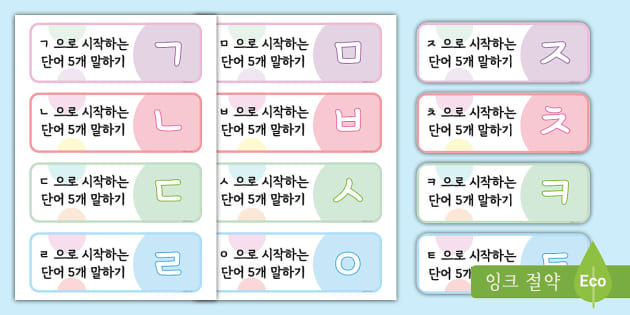





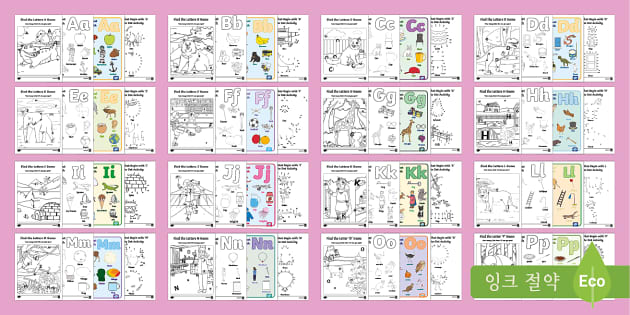
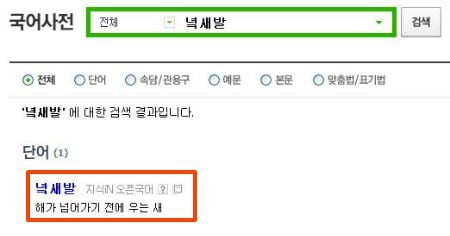
















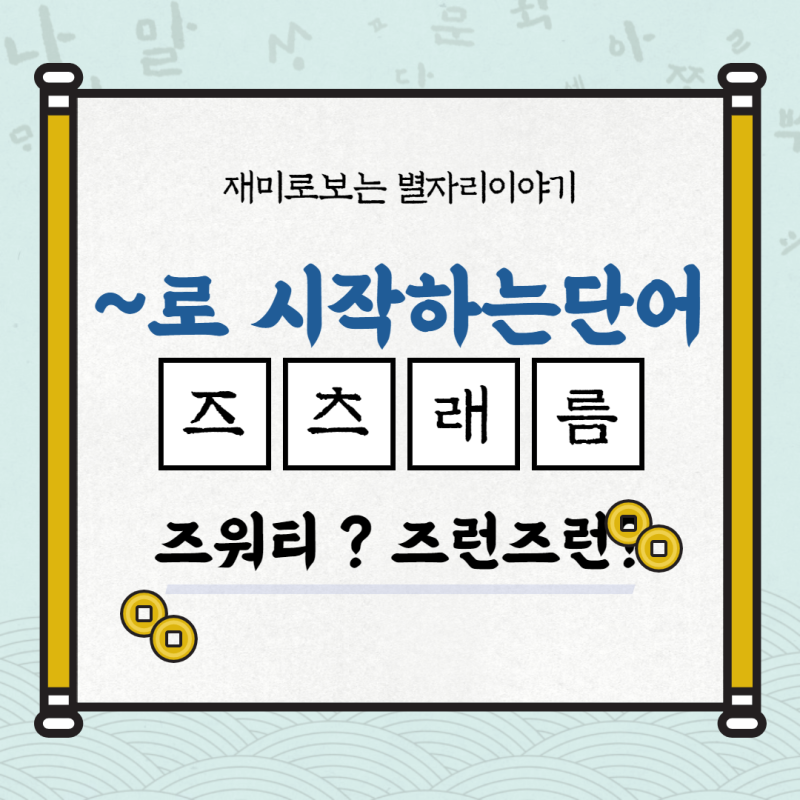

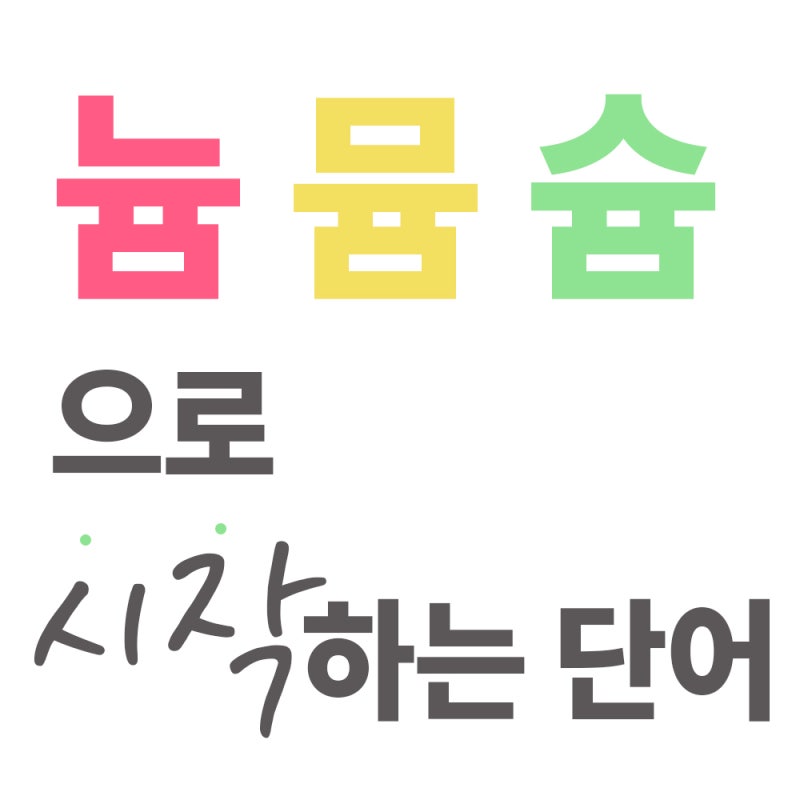










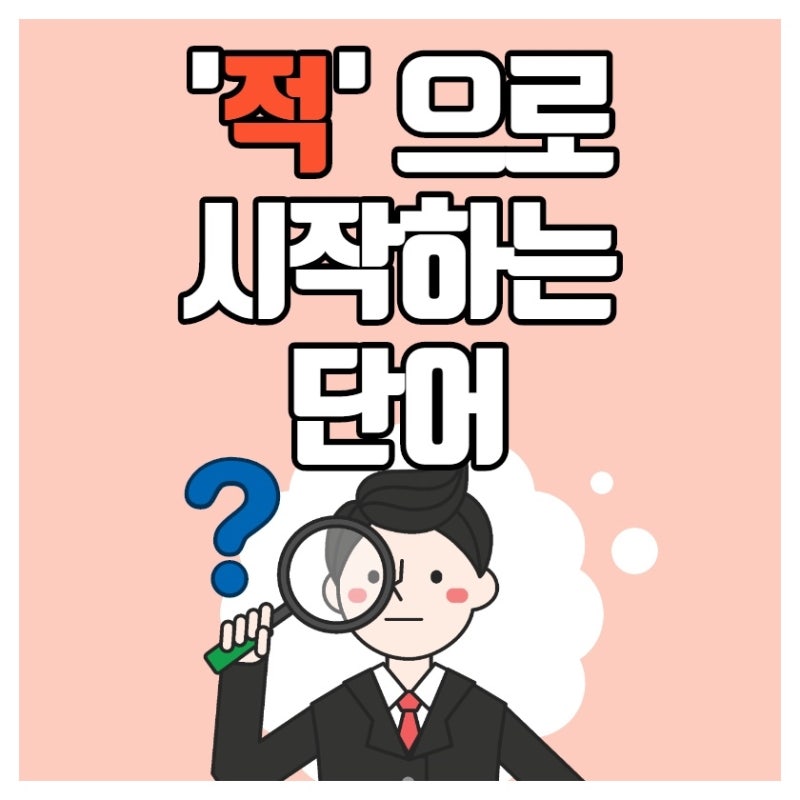






Article link: 란으로 시작하는 단어.
주제에 대해 자세히 알아보기 란으로 시작하는 단어.